Sue Hickey says decision not to force amalgamations is a wasted opportunity
Some councils are breathing a sigh of relief after the state government promised there would be no forced amalgamations, but one deputy mayor says it’s a decision Tasmanians will pay for. Latest >
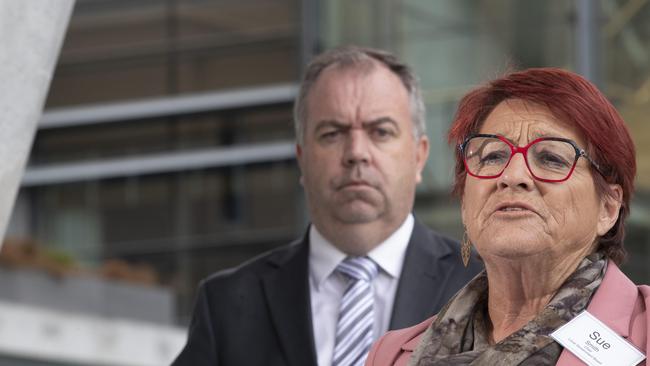
Politics
Don't miss out on the headlines from Politics. Followed categories will be added to My News.
Ruling out forced amalgamations is a wasted opportunity, Glenorchy deputy mayor Sue Hickey says, after a decision by the state government over the weekend.
On Saturday Local Government Minister Nic Street said he wanted to end the uncertainty for councils.
The decision is at odds with the opinion held by the Local Government Review Board, which has previously said substantial reform to deliver improvements cannot be achieved by voluntary amalgamation.
It’s an opinion shared by Ms Hickey who is also former Lord Mayor of Hobart City.
“I am very disappointed in what looks like a back down on this very necessary reform just to try to retrieve voters. Tasmanians are not stupid,” Ms Hickey said.
“I was hoping the government’s review was going to be the big, bold brave and accountable way forward, but with the sniff of an election, the process and the huge investment made to date looks to be wasted, the opportunity lost for another decade and all Tasmanias pay.”
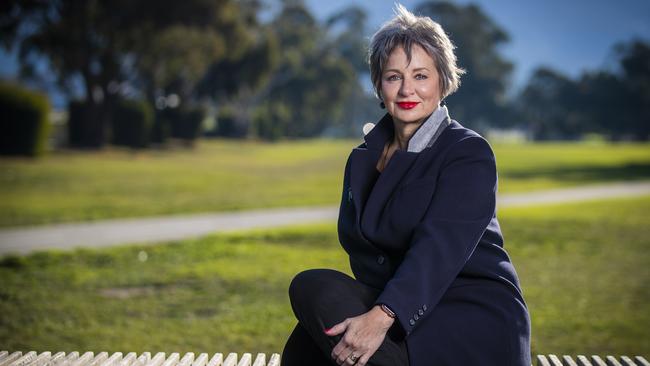
On Sunday, Premier Jeremy Rockliff denied the rejection of forced amalgamation was a pre-election tactic, and denied an early election was on the way.
The announcement followed criticism from the Tasman and Northern Midlands and Central Highlands mayors.
Ms Hickey said it was inefficient and unsustainable to have 29 councils.
“Governments at all levels need to be modernised, proactive and future focused,” Ms Hickey said.
“We need to stop the duplication of services, the cost shifting and revolutionise our practices.
“The tiny councils are becoming irrelevant and do not have rates bases to be sustainable without reliance on government funding, despite all their chest beating.
“At the last major reform, from 46- 29 councils, Esperance Council was amalgamated.
Would any sane person consider reinstating it?”
Northern Midlands mayor Mary Knowles said it was reassuring forced amalgamations had been ruled out.
“Council cannot see any benefit for Northern Midlands residents from participation in mergers or boundary changes,” Ms Knowles said.
“Council is also concerned that property owners would face a rise in rates under any of the Board’s proposed boundary change or merger scenarios.”
Council merger decision not pre-election tactic: Premier
July 16, 5:30pm
Premier Jeremy Rockliff says the decision to rule out forced council amalgamations is not a ploy to keep voters on side ahead of an early election.
The announcement on Saturday has been welcomed by some but one group says it doesn’t go far enough.
On Saturday Local Government Minister Nic Street said he wanted to end the uncertainty after some mayors were highly critical of possible forced mergers.
It’s an announcement which comes despite the opinion held by the review board that voluntary amalgamations will not work.
“While the Board has heard a range of concerns about both ‘forced amalgamations’ and ‘mandated shared services’, it firmly believes that substantive structural reform – the sort needed to deliver significant improvements to how Tasmania’s system of local government works in the future – simply cannot be achieved on an ‘opt-in’ or voluntary basis,” the Local Government Reviews stage two interim report says.
The decision has been met with relief from some groups.
Planning Matters Alliance Tasmania state director Sophie Underwood said there were many concerned about the possibility.
“Experience interstate is that forced council mergers deliver poor outcomes for communities and local democracy,” Mr Underwood said.
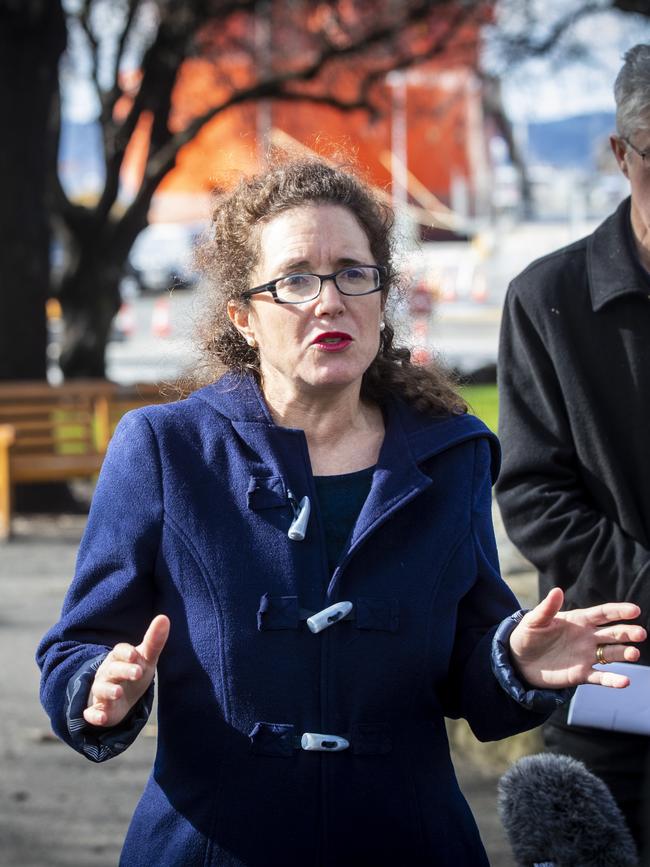
“The meetings PMAT held across the state heard community concerns about the loss of local representation, the sell off of council assets, dismissal of staff and loss of local identity and local decision making.”
Australian Services Union Tas secretary Lisa Darmanin also welcomed the move but called for the state government to put an end to the review altogether.
“Continuing with the review is the government trying to save face, but the government’s backflip is acknowledgment that it has failed,” Ms Darmanin said.
“The Government must now also rule out the centralisation of services.”
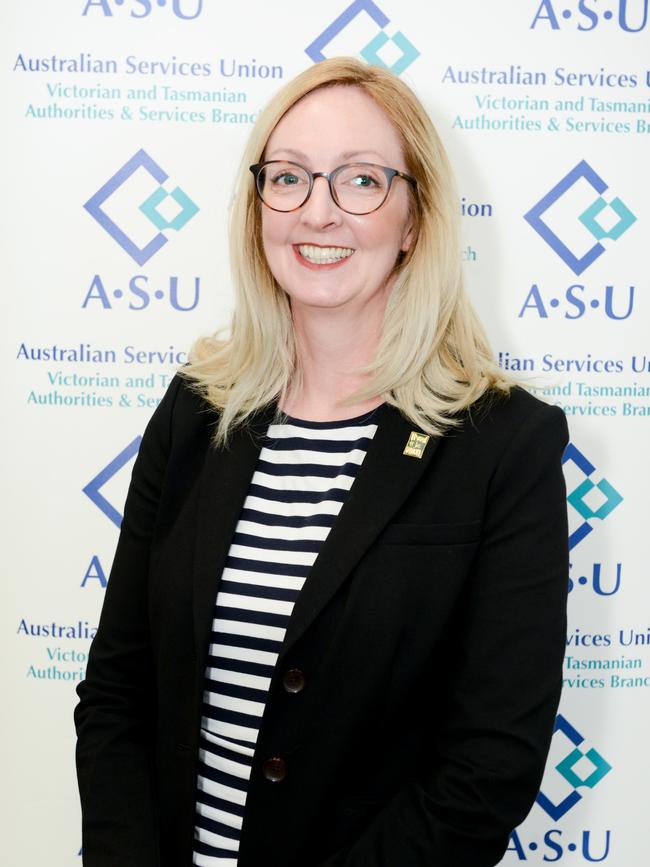
On Sunday Local Government Minister Nic Street said he hoped more councils would co-operate with the local government review process.
“What we’re trying to do is remove the uncertainty that exists in the local government sector which has meant there have been councils which have chosen not to take part in this process,” Mr Street said.
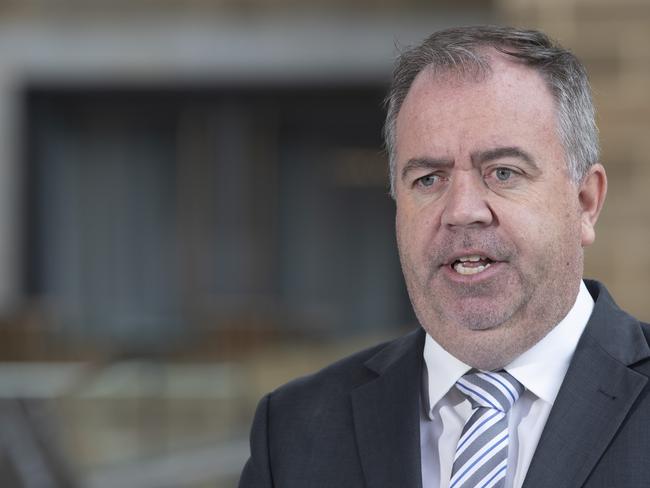
While Premier Jeremy Rockliff denied the government’s rejection of forced amalgamation was a pre-election tactic.
“Today is about listening to the community, there will be no early election,” Mr Rockliff said.
Tasmanian political analyst Kevin Bonham said whether amalgamations had the potential to sway voters depended on timing.
“It depends on the scale it of it and how close it is to the next election,” Mr Bonham said.
“I don’t think we should assume the next election is going to be completely dominated by the stadium, if it’s some time down the track it may be.”
Mr Bonham said the idea of mergers was a hard sell.
“People want the number of councils to be reduced, but when it’s their own council they can have a different attitude,” Mr Bonham said.
“A reduction in the number of councils probably means a reduction in the number of councillors … Councillors can have a vested interest in fighting to maintain the existing structure.
“General fear of change comes up a lot, people don’t know what the new thing is going to be like … It’s fairly easy with change to spread doubt about a change.”
End of ‘fear and uncertainty’: Forced council mergers ruled out
July 16, 12am
The Tasmanian Government has ended “fear and uncertainty” by ruling out forced council amalgamations.
In a move to quell disquiet from many smaller councils, Premier Jeremy Rockliff and Local Government Minister Nic Street, say councils will now make their own decisions on whether to amalgamate.
“We have listened to the concerns of Tasmanians and councils, and I want to end their fear and uncertainty today,” Mr Rockliff said.
“The Local Government Review Board is continuing their important work, but I want to make it clear, this will not result in forced amalgamations.
“Communities and councils will decide their own future.”
There has been concern that Tasmania has too many local councils.
Thirty years ago the number was slashed from 46 to 29 and a recent review identified nine “community catchments” as the basis for further consultation.
The review rejected claims it wanted nine super councils but several mayors feared ratepayers would not get adequate representation if they became part of a bigger council.
Mr Street said there would no changes forced on ratepayers.
He said different communities had different needs, and the government’s process would ensure local communities had the final say.
“Today, I want to provide some comfort to Tasmanians by outlining the pathway that we will follow when the Board hands down its final report on October 31,” Mr Street said.
“Each council will be invited to review the final report and make a submission to Government, about what they want.
“Any plans agreed by councils will be taken to the community for a vote, to ensure it has community support to go ahead.
“There will be no changes unless both the council and community want them.”
Mr Street conceded some councils would not want to have a vote on amalgamations.
“I am confident that some councils will be eager to participate in this process, while others will not. But, importantly, it is for councils and communities to determine and they will have the final say, but with the benefit of the extensive work that has been undertaken by the Board.”
“We commenced this review of local government in good faith and for all the right reasons, I do not want to see rates rises of 10 per cent or more become the new normal because councils can’t cover their costs.”
Mr Street took a swipe at Labor and unions accusing them of trying “their best to derail this process with fear mongering, and I won’t have that”.
“This should be about what is best for local communities, which is what is informing our approach,” he said.
He praised the review board describing their community engagement and research as “exceptional”.
After a request from the Local Government Association Mr Street extended the time frame for consultation on the third and final stage of the review and also extended the board’s final reporting date by one month to October 31.




